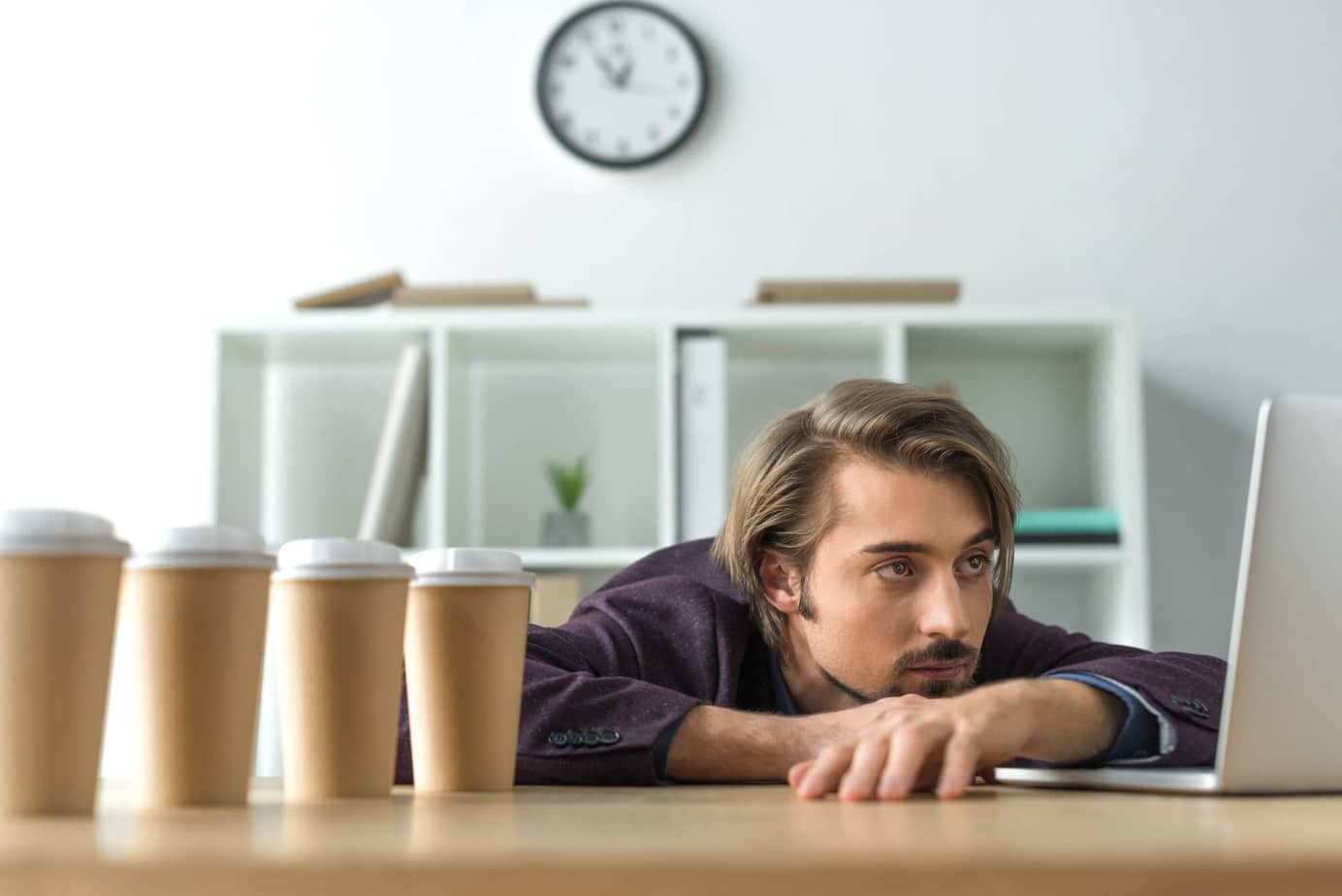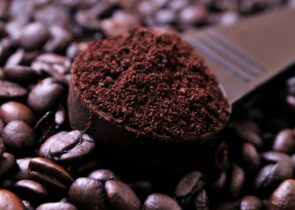Coffee is a staple of the American diet in the morning, at lunch, and even in the evening. Most people drink coffee because it gives them an energy boost and helps them wake up in the morning, and maybe that’s why you started drinking it, too.
But your morning coffee doesn’t work anymore. Perhaps daily coffee drinking once worked, and it doesn’t anymore, or maybe drinking coffee always made you feel more tired, leaving you with the question, “Why doesn’t coffee keep me awake?” We have some answers for you and advice on what to do about it.

Why coffee Doesn’t Keep You Awake
So what is the deal here? Healthline narrows the answer down to four reasons why coffee doesn’t keep you awake as you want.
Caffeinated Coffee Blocks Adenosine
Yes, caffeine is a stimulant, but it also blocks adenosine molecules, a neurochemical that regulates your sleep cycles. Ordinarily, you produce more adenosine while you’re awake, and it drops off after you fall asleep at night.
However, your daily dose of caffeine blocks adenosine receptors but doesn’t stop actual production. That means that after the caffeine from coffee leaves your system, you have a buildup of adenosine levels looking for receptors to bind to. While it sounds like that should help maintain your energy levels, it doesn’t. It makes you feel tired.
Caffeine is a Diuretic and Vasoconstrictor
You might be aware that dehydration leads to fatigue, but if you’re not, then keep that in mind. Caffeine has a diuretic effect, meaning it pulls water from your body and flushes it without replacing it.
Your cells shrink, your blood thickens a bit, and your body has to work harder to function, all of which make you feel groggy and tired.
The caffeine in coffee works to constrict your blood vessels. It’s why some headache medicines like Excedrin make heavy use of it; the blood vessel constriction helps relieve the headache better than the painkillers alone.
That changes the way your blood flows throughout your body, increasing blood pressure and reducing blood flow and oxygen levels to certain organs and tissues, including your brain. As such, you start to feel fatigued and possibly sleepy.
Caffeine Affects Your Sleep Cycle
The caffeine in coffee may disrupt your sleep cycle because of how it interacts with various neurochemicals and body processes. That leaves you feeling tired no matter how much you consume each day. In fact, the more you consume, the worse this vicious cycle can get.
According to SleepFoundation.org, caffeine reduces your sleep efficiency, keeps you from falling asleep quickly, and lessens your slow-wave sleep, which is the deep, restful sleep you need to function properly.
Because caffeine provides you with a jolt of energy, it becomes easy to think it can stand in for at least a few hours of sleep.
Ultimately, you end up chronically sleep-deprived, especially as you drink more caffeinated beverages throughout the day to stay awake and focused. You get to a point where you feel like it doesn’t do any good no matter how much coffee you drink.
Disordered Breathing
Overuse of caffeine or long-term coffee consumption can cause sleep-disordered breathing, which the Sleep Society says is one of the main characteristics of obstructive sleep apnea, among other breathing disorders.
While caffeinated drinks have the strongest link to this, if you’re a coffee drinker having problems with disordered breathing, consider getting a sleep study while also cutting back on your coffee intake.
Sugar
If you put a lot of sugar or sugary things in your coffee drink of choice, you can experience a sugar crash not too long after you finish. The dose of caffeine doesn’t counteract that very well, leading you to want more coffee.
This, too, creates a vicious cycle where you drink coffee for the caffeine but continually feel drained of energy. The more you do this, the worse it gets.
How to Minimize These Problems
Fortunately, you can reduce these problems with just a few changes, none of which include giving up your morning cup:
- Stick to less than 400 milligrams of caffeine per day (two to four eight-ounce cups of coffee depending on the mix)
- Reduce or eliminate sugar and sugary additives
- Alternate one cup of coffee with one cup of water
- Try switching to decaffeinated coffee or coffee beans, or avoid afternoon coffee consumption altogether
- Don’t ingest anything with caffeine (coffee, tea, soda, energy drinks, pills, etc.) within six hours of bedtime
Limit Your Caffeine and Sugar Intake
We know how frustrating it is to wonder, “Why doesn’t coffee keep me awake?” Generally, it’s because the caffeine in coffee disrupts neurochemicals and other things affecting your sleep-wake cycle. That, in turn, leaves you feeling sleepy, sluggish, and unhappy that your drip coffee isn’t doing its job.
Fortunately, you can address the problem with just a few changes, helping you feel better without having to give anything up.
Happy Caffeinating!







